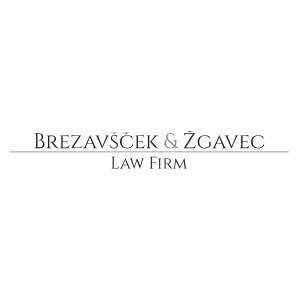Best Contract Lawyers in Slovenia
Share your needs with us, get contacted by law firms.
Free. Takes 2 min.
Or refine your search by selecting a city:
List of the best lawyers in Slovenia
About Contract Law in Slovenia
Contract law in Slovenia is a part of civil law, which governs the legal implications of voluntary agreements between parties. It is primarily regulated by the Obligations Code (Obligacijski zakonik), which sets out the general principles of contracts, terms, formation, validity, and enforcement. Slovenian contract law aims to ensure that agreements are made and executed fairly and transparently, providing a reliable framework for business transactions and personal agreements alike.
Why You May Need a Lawyer
Individuals and businesses may require legal help with contracts for several reasons. Common situations include drafting and reviewing contracts to ensure clarity and lawful terms, negotiating agreements, resolving disputes or breaches, understanding complex contractual provisions, and pursuing or defending claims in court. Legal expertise can help avoid pitfalls that could lead to costly litigation or unenforceable contracts.
Local Laws Overview
The key aspects of contract law in Slovenia include the principle of freedom of contract, which allows parties to formulate contracts according to their interests within the law's constraints. The law also includes provisions for contract interpretation, performance, and non-performance remedies. Particular attention is often paid to consumer protection laws, which regulate contracts between businesses and consumers to prevent unfair practices. Additionally, electronic contracts and digital transactions have specific protocols under Slovenian law.
Frequently Asked Questions
1. What makes a contract legally binding in Slovenia?
A legally binding contract in Slovenia requires mutual consent, legal capacity of the parties, a lawful object, and the contract must follow formal requirements, if applicable.
2. Can alterations be made to a contract after it is signed?
Yes, alterations can be made if all parties agree to the changes. It is advisable to document changes in writing and ensure they are properly signed.
3. Are verbal agreements considered valid in Slovenia?
Verbal agreements can be legally valid; however, written contracts are advisable for clarity and to provide evidence in case of disputes.
4. What are the consequences of breaching a contract?
Consequences may include requiring the breaching party to perform their obligations, compensation for losses, or contract termination under certain conditions.
5. Is there a standard period for performance of a contract?
The period for performance is usually stipulated within the contract. If unspecified, the law provides reasonable periods but may vary depending on the specifics.
6. How can a contract be terminated?
A contract can be terminated by mutual agreement, fulfillment of obligations, breach, or other lawful reasons such as impossibility to perform or withdrawal rights.
7. Are there special considerations for business-to-consumer contracts?
Yes, such contracts are subject to consumer protection regulations ensuring clear terms, right of withdrawal, and prohibition of unfair terms.
8. How are disputes typically resolved under Slovenian contract law?
Disputes may be resolved through negotiation, mediation, arbitration, or litigation, with courts being the final resort for unresolved issues.
9. Can electronic contracts be enforced in Slovenia?
Electronic contracts are enforceable as long as they meet legal requirements and both parties have agreed to electronic transactions.
10. Who is responsible for enforcing contract law in Slovenia?
The enforcement is primarily judicial, through the courts, with specific agencies overseeing areas such as consumer protection.
Additional Resources
For further assistance or information, you may contact or visit the Ministry of Justice of the Republic of Slovenia, the Slovenian Bar Association, consumer protection offices, or specific legal aid centers. These resources offer guidance, legal aid, and further details on contract law.
Next Steps
If you need legal assistance, consider consulting a qualified lawyer specializing in Slovenian contract law. Begin by preparing all relevant contract documents and a clear account of your needs or issues. Initial consultations often help determine your legal position and the best course of action. You may also explore professional organizations or legal aid services that provide specialized support in contract matters.
Lawzana helps you find the best lawyers and law firms in Slovenia through a curated and pre-screened list of qualified legal professionals. Our platform offers rankings and detailed profiles of attorneys and law firms, allowing you to compare based on practice areas, including Contract, experience, and client feedback.
Each profile includes a description of the firm's areas of practice, client reviews, team members and partners, year of establishment, spoken languages, office locations, contact information, social media presence, and any published articles or resources. Most firms on our platform speak English and are experienced in both local and international legal matters.
Get a quote from top-rated law firms in Slovenia — quickly, securely, and without unnecessary hassle.
Disclaimer:
The information provided on this page is for general informational purposes only and does not constitute legal advice. While we strive to ensure the accuracy and relevance of the content, legal information may change over time, and interpretations of the law can vary. You should always consult with a qualified legal professional for advice specific to your situation.
We disclaim all liability for actions taken or not taken based on the content of this page. If you believe any information is incorrect or outdated, please contact us, and we will review and update it where appropriate.
Browse contract law firms by city in Slovenia
Refine your search by selecting a city.

















